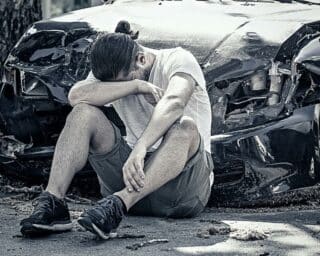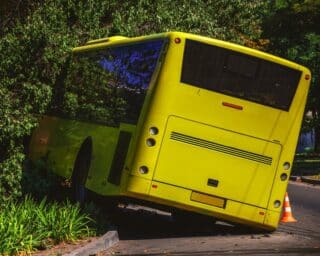Nevada lawmakers passed the No Pay, No Play law to limit an uninsured driver’s ability to recover non-economic damages, even if he or she wasn’t at fault for the car accident. Nevada law requires drivers to carry the minimum liability coverage amounts. The No Pay, No Play law was meant to provide an extra incentive for drivers to stop breaking auto insurance laws in Las Vegas and the rest of the state. The law includes exceptions that allow uninsured drivers to collect full car accident damages in some cases.
What Does No Pay, No Play Mean?
The No Pay, No Play law targets drivers who were violating the law at the time of an accident. It limits their ability to pursue compensation for the harm suffered, even if they weren’t at fault for the crash. While certain aspects of the law may vary by state, the basis remains the same. Law-breaking drivers miss some types of compensation they would otherwise have been entitled to receive.
What Are Nevada’s Driving Laws?
Nevada has a number of driving rules that are universal throughout the nation, such as always using the right side of the road, yielding to pedestrians, and stopping for school buses when they’re displaying flashing red lights. Just like other states, Nevada prohibits drunk driving. The blood alcohol content threshold for drunk driving is 0.08 (0.04 for commercial drivers). The state’s seatbelt laws require front and rear seat occupants of passenger vehicles to wear seatbelts or ride in approved child restraint systems if under 6 years old and shorter than 57 inches.
In a bid to reduce distracted driving, the state prohibits drivers from accessing the internet, texting, and using handheld cellphones while driving. Drivers are required to obey the posted speed limits. Nevertheless, they must also consider other factors like the weather, road conditions, and traffic and drive at reasonable speeds. When passing cyclists, drivers should leave no less than three feet of clearance space between the vehicle and the cyclist.
Nevada requires all drivers to purchase liability coverage. This basic liability coverage kicks in when the insured is at fault for an accident and pays for the other driver’s injuries and property damage. The minimum amount of liability insurance that motor vehicle operators are required to carry according to the current Nevada driving laws is:
- $25,000 for bodily injuries or death per person
- $50,000 for total bodily injuries or deaths per accident
- $20,000 property damage liability per accident
The current minimums came into effect on July 1, 2018, and might change again in the future.
Damages in a Car Accident Involving a Law-Breaking Driver
In Nevada, legislators passed the No Pay, No Play law a few years ago, targeting drivers who commit the crime of failing to meet the state’s insurance requirements. The No Pay, No Play law makes it harder for uninsured drivers to collect full compensation for car accident damages suffered.
The law prevents uninsured motorists from collecting compensation for their non-economic damages arising from accidents with insured drivers. Non-economic damages compensate injured victims for harms and losses that are difficult to assign a specific dollar value. They form a considerable portion of car accident damages. They include compensation for emotional distress, pain and suffering, and disfigurement.
The law-breaking drivers may still be eligible to recover economic damages if they weren’t at fault for the accident. Economic damages are those with specific monetary costs, such as property damage, medical expenses, and lost wages.
The No Pay, No Play rule is based on the belief that individuals who don’t purchase coverage shouldn’t receive benefits from the other driver because had they been at fault, they wouldn’t have managed to provide the same benefits to the other driver. According to lawmakers, the law encourages uninsured drivers to purchase insurance and lowers car insurance rates.
There are exceptions to the No Pay, No Play law, where drivers may collect economic and non-economic damages regardless of their insurance status. Such circumstances include when a driver is injured in a drunk driving or hit-and-run accident, and he or she isn’t at fault. People whose insurance policy has expired have a 45-day grace period from when the policy lapsed to correct the issue. Additionally, families of drivers who died in car accidents can file a wrongful death claim against the at-fault party, regardless of the decedent’s insurance status.
If you’re involved in a car accident in Las Vegas and were uninsured or underinsured, it’s normal to be unsure about your eligibility to file a claim for damages. Insurance companies may even try using No Pay, No Play laws to significantly reduce or deny your claim. Comprehensive knowledge of Nevada laws will come in handy. A car accident attorney can answer your questions, review your case, provide advice on your rights and options, and fight for the best compensation available under your circumstances.
What Are a Driver’s Legal Duties After a Car Accident in Las Vegas?
Nevada law imposes several legal duties on drivers following an accident in Las Vegas or elsewhere within the state.
The Duty to Stop
When there’s an accident in which someone has been injured or killed, the driver or drivers involved must stop at or near the crash scene. Fleeing the scene could lead to serious legal consequences, including imprisonment.
Move the Vehicle Out of Traffic
After an accident, Nevada law also requires you to move your vehicle to a location where it doesn’t create a hazard or obstruct traffic if it can be moved safely.
Exchange Information
Nevada law requires drivers to exchange information with the other parties involved in the accident. This information includes the driver’s name, address, and the car registration number.
Provide Reasonable Assistance
Drivers are also required to give reasonable assistance to injury victims at the accident scene, such as by calling emergency services for their transportation to a hospital or doctor if medical treatment seems necessary.
Notify the Police
After an accident involving injury or death, you should notify the police or Nevada Highway Patrol, unless there’s an officer already at the scene.
Report to the DMV
You should report an accident to the Nevada Department of Motor Vehicles if it involves injuries or damages amounting to $750 or more within 10 days of the accident. You wouldn’t have to report to the DMV if a police officer investigated the crash.
Locate the Owner of an Unoccupied Vehicle
If your accident involved an unoccupied vehicle, you should either locate the car owner or leave a written notice containing your name and contact details securely in a conspicuous location.
What You Should Do After a Car Accident
There are dos and don’ts after a car accident in Las Vegas that can make or beak your claim. What you do immediately after a crash can be crucial to your ability to recover fair compensation. Here are the steps you should take after an accident.
Ensure Your Safety
Safety should be your first priority. Check the surroundings for danger before exiting your vehicle. Check yourself and other passengers for injuries. If your car is blocking the normal flow of traffic, move it to a safer place, such as the side of the road, if possible.
Call the Police
Call the police soon after the accident. When the police come to the scene, the information the officers gather and the report they create will be crucial to your car accident claim. Answer the questions asked concisely and truthfully. Avoid making statements about fault or downplaying your injuries at the crash scene.
Document the Scene
Take photos and videos of the accident scene, your injuries, and anything else that may be helpful to your case, such as skid marks, traffic signals, nearby signs, and road conditions. Identify any witnesses and get their names and contact information.
Exchange the Necessary Information
Get the other driver’s contact and insurance information. If your crash involved an unattended vehicle and you can’t find the owner, leave something like a written note and your business card under the windshield wiper.
Get Medical Care
Seek medical attention without delay, even if you or your passengers feel fine. The shock that accident victims may be in after a crash makes it harder for them to feel or see the injuries they’ve sustained. Some internal injuries may take time to fully manifest. Medical documentation of injuries immediately after a crash is valuable in car accident cases. It prevents insurers from denying your claim on the grounds of your injuries not being as serious as you allege, or that the injuries weren’t caused by the accident.
Take Notes
Write down as many details as you can remember about the accident while they’re still fresh in your mind.
Contact an Attorney
A car accident attorney will examine your circumstances and provide further guidance on your legal options and the next steps you should take. An attorney can investigate your crash, preserve evidence, and represent your best interests during negotiations with insurance providers.





